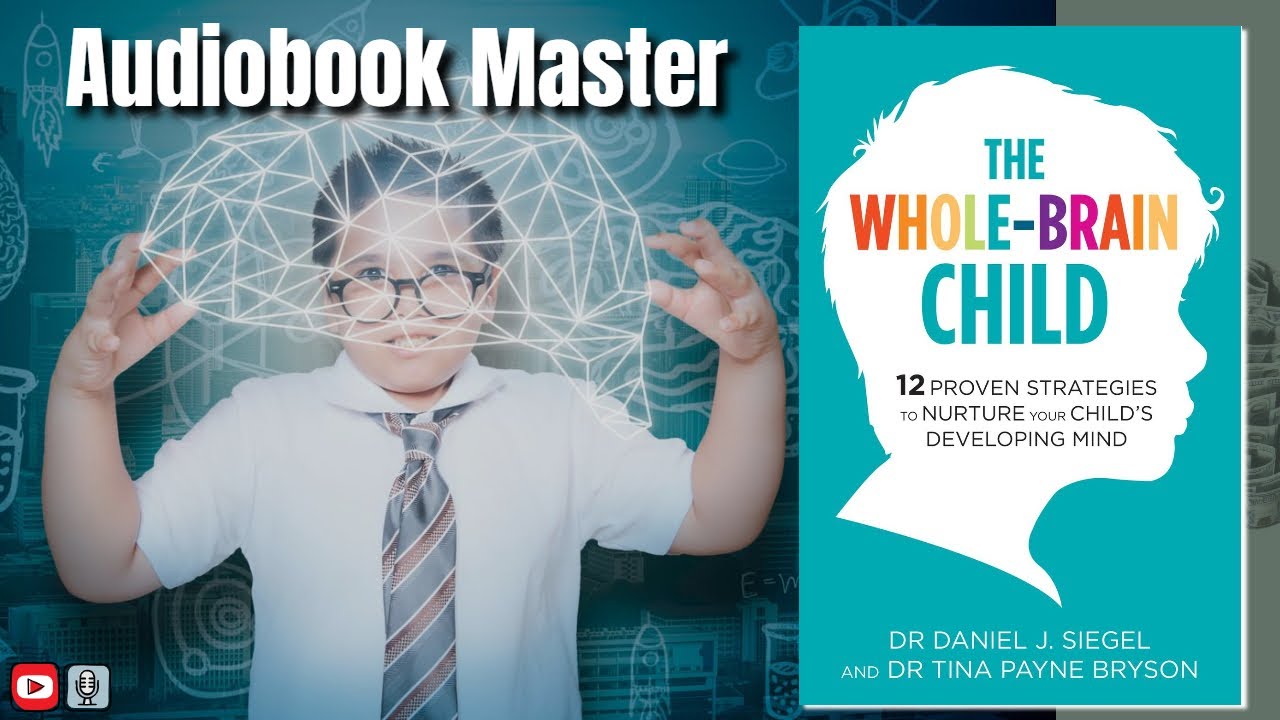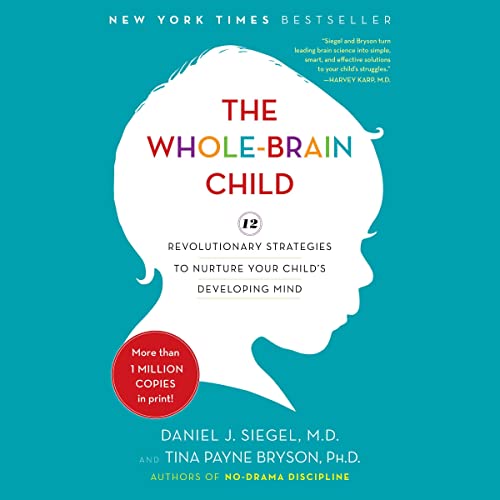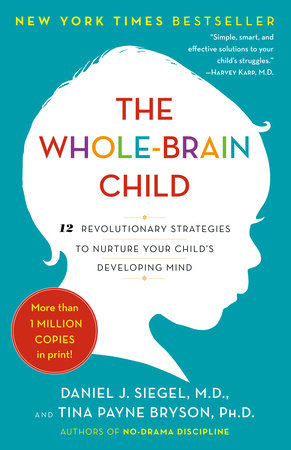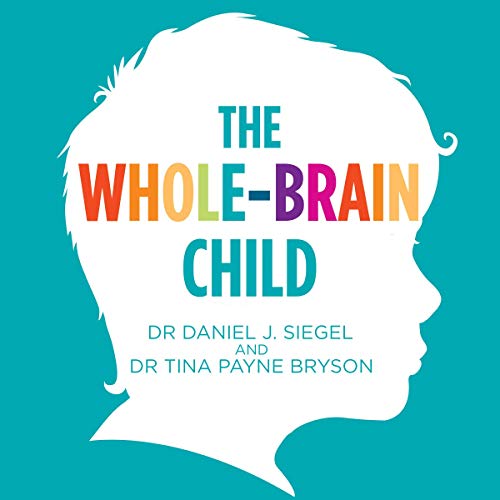Daniel J. Siegel’s “The Whole-Brain Child” audiobook offers practical strategies for nurturing a child’s developing mind. It emphasizes integrating both brain hemispheres for balanced growth.
“The Whole-Brain Child” by Daniel J. Siegel provides insightful guidance for parents to support their children’s emotional and intellectual development. This audiobook explores how to nurture a child’s brain by integrating its different parts for balanced growth. Siegel, a renowned neuropsychiatrist, presents 12 key strategies that help children handle their emotions and improve decision-making skills.
Parents can better understand their child’s behavior and respond more effectively. Listening to this audiobook can transform parenting approaches, fostering healthier, happier kids. It’s an essential resource for those looking to enhance their parenting skills with scientifically-backed techniques.
Introduction To ‘the Whole-brain Child’
Daniel J. Siegel is a famous psychiatrist. He writes about the brain and child development. His work helps parents understand their kids better. Dr. Siegel is also a professor at UCLA. He has written many best-selling books. His ideas are used by teachers and therapists worldwide.
The Whole-Brain Child teaches how to integrate both sides of the brain. It helps kids manage their emotions better. The book uses fun strategies like storytelling. It also includes practical tips for everyday challenges. Parents can learn to connect with their kids more deeply. The goal is to help children become balanced and resilient. This approach makes parenting easier and more effective.
Key Concepts Explained
Integration means linking different parts of the brain. It helps kids grow balanced and calm. The brain has many parts, each doing special tasks. Bringing these parts together helps in thinking better.
A child’s brain can work together like a team. This teamwork helps in solving problems and handling emotions. Strong connections in the brain lead to better behavior and learning.
The Upstairs And Downstairs Brain
The brain has two main areas: the upstairs and downstairs. The upstairs brain handles thinking and planning. The downstairs brain controls emotions and basic functions. Both parts are important for a happy, healthy child.
Helping children use both parts of the brain is key. This balance helps them make smart choices and stay calm. Kids learn to manage their feelings and think clearly. Understanding the brain makes parenting easier and more effective.
Strategies For Whole-brain Child Rearing
First, connect with your child. Make them feel understood. Use a calm voice. Show empathy. Help them feel safe. Next, redirect their behavior. Guide them gently. Offer choices. This teaches self-control. Children learn to manage their emotions better.
Help your child name their feelings. Use simple words. “You are sad” or “You are angry.” This helps them understand emotions. Naming feelings makes them less scary. Children feel more in control. They learn to express themselves better. This builds emotional intelligence.

Applying The Strategies In Everyday Life
Stay calm during tantrums. Children need your calmness to settle. Acknowledge their feelings. Say, “I see you are upset.” This helps them feel understood. Offer a hug if they want one. Sometimes touch can soothe emotions. Give them space if they need it. Let them have a safe area to calm down. Use simple words to explain feelings. Say, “You are angry because you can’t have the toy.” This helps them understand their emotions. Set clear limits. Say, “We don’t hit, but we can talk about it.” Consistency is key. Praise good behavior after they calm down. It encourages them to manage emotions better next time.
Talk about feelings often. Ask your child how they feel. Use stories to explain emotions. Stories help children relate. Teach them to name their emotions. Say, “That’s what sad feels like.” Model good emotional behavior. Show them how to stay calm. Practice deep breathing together. It helps in stressful times. Encourage empathy. Ask them how others might feel. Praise their efforts in understanding emotions. It builds confidence. Make it a daily habit. Talk about emotions every day.
Impact On Parent-child Relationships
Parents can learn new ways to connect with their children. The audiobook teaches techniques that help children feel understood. Empathy plays a key role in these techniques. Listening carefully to your child can make a big difference. It is important to show patience and care in every interaction. Small acts of kindness can build stronger bonds. Parents who practice these techniques often see improved relationships with their kids.
Good communication is essential for a healthy relationship. The audiobook offers practical advice on how to talk to your child. Using simple words can make communication easier. Active listening is another important skill. It means listening without interrupting. This makes children feel valued and heard. Clear communication can reduce misunderstandings. Parents and children can solve problems together more effectively. These skills can make family life more enjoyable.

Challenges In Implementing Whole-brain Approaches
Parents often face difficulties understanding the whole-brain approach. Misconceptions about child development can hinder progress. Lack of time and resources are common barriers. Emotional responses can make it hard to stay consistent. Some parents may feel overwhelmed by new techniques. Traditional methods can seem easier to follow.
Start with small changes in daily routines. Share success stories to inspire confidence. Offer support groups for parents to discuss challenges. Provide educational resources to explain the benefits. Encourage patience and persistence. Celebrate small victories to build momentum.
Success Stories And Testimonials
Many parents see big changes in their children. Kids become more calm and happy. They understand their feelings better. Parents feel less stress. Families grow closer and enjoy more time together.
Teachers notice that kids listen more in class. They follow rules better. Kids find it easier to make friends. They handle problems with more confidence.

Further Reading And Resources
Daniel J. Siegel has written many helpful books. Some of these books include “Parenting from the Inside Out” and “Mindsight”. These books give more insights into child development. “The Yes Brain” and “No-Drama Discipline” are also great for parents. These books help parents understand their children better.
Many online communities discuss Siegel’s work. These communities offer support and share tips. Some websites have free articles by Daniel J. Siegel. You can join Facebook groups or forums dedicated to his teachings. These resources help parents connect with each other.
Conclusion
Daniel J. Siegel’s “The Whole-Brain Child” audiobook offers valuable insights for parents. It provides practical strategies for nurturing a child’s brain development. This resource is essential for fostering emotional intelligence and resilience. Investing time in this audiobook can transform your parenting approach.
Empower yourself with knowledge and create a harmonious family environment.



